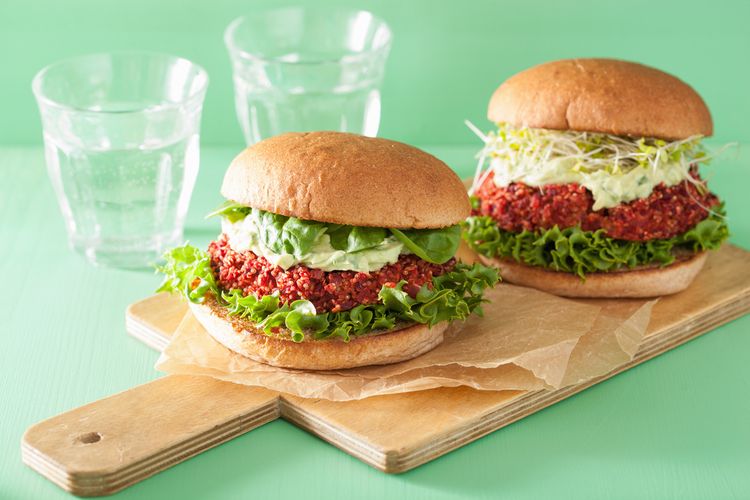A Letter To Those Who Judge The Health Choices of Others
Mac and cheese. Coca-cola. Dunkaroos. Domino’s Pizza. Up until the age of 12 (fine, 17), that would have been my answer to the question “what are the four food groups?”
I never thought twice about what I was putting into my body. And based on various family members and friends who I was surrounded by during my youth, the word “diet” to me meant a temporary break from terrible eating habits in order to drop a few pounds.

Lifestyle was another topic altogether. I wasn’t much into yoga, for example, and couldn’t wrap my head around the idea that people could go out of their way to do something aimed at reducing stress, which in turn could help them heal. I think that had as much to do with growing up in a frigid city on the east coast as anything else, but that’s another story for another day.
And then out of necessity, diet and lifestyle became a central focus in my life.
I was working with a nutritionist in my early 20’s who suggested that I take up yoga, as well as jog Mount Royal (the tallest mountain in my hometown of Montreal) in the dead of winter, wearing a thermal jogging suit. I thought he was kidding at first, but he wasn’t.
I began to practice yoga three times a week and ran that mountain every other day for the next few months. The results were undeniable and immediate. This was a “morning cup of Joe” on steroids. These activities, coupled with my newly improved diet, left my body and mind feeling better than it had in a long time.
While making these dietary and lifestyle changes in my early 20’s, I also encountered something entirely new to me – mockery of my habits.
I’d tell my friends that I was going to pass on a night of drinking so that I could be up early to hit the mountain. I’d be greeted by looks of confusion and snickering.
I would try to share my successes and knowledge with friends and family by advocating for the use of certain foods, or by modifying sleep habits in a certain way. Not only was this met with eye-rolling, but also with resistance. I didn’t quite understand it at first, but it made me feel like a real weirdo. I resented being judged.
Soon, I began to judge those around me as much as they were judging me. And at times I became preachy. You’re eating that? You’re doing what? Garbage. Silly.
I compared others to myself. If I’m able to buckle down and do something, why can’t the next person? I was trying to get people to not only understand why I was living the way that I was, but also to know the life that’s available to them. And often times I went about it the wrong way.
Eventually, I learned to make changes. Acceptance became an important concept in my life. And this goes both ways – in terms of who I choose to surround myself with, and also how I choose to perceive the habits of others. This cycle of judgment or acceptance is taking place in restaurants, office break rooms, holiday gatherings and other social events each and every day.
On one hand, we have people who are making health choices to better their lives or even save their health. These people go out of their way to surround themselves with “their people,” in order to avoid judgment from all the “normals.”
On the other hand, we have those who have no health concerns. These people might make a healthy lunch choice occasionally or even often, but might not be able to relate to someone who eats a specific way out of necessity.
Judgment is happening at all times, and in both directions. When I realized that I was doing as much of the judging as the people who laughed at my thermal suit or my 15-vegetable salad, I knew that I had to lead the way for change, beginning with myself.
I fought urges to preach knowledge. I stopped acting as though my way was the right way (the only way). I began to accept that health has a different meaning and definition for different people.
Acceptance has been one of the foremost tools in my life that’s kept me sane in the most challenging of times. Trying to understand every single person and “fixing” or “changing” those who could use optimization or improvement is not only a daunting task, but an unnecessary one.
Long ago, I gave up offering unsolicited health advice to people. If someone comes to me for advice, I’m happy to share with them what I would do in their shoes, but I make a real point to not speak condescendingly, with judgment or with absolution.
One person would be content living 40 reckless years in this world, while the next would prefer 95 happy and safer years spent watching a family grow. Happiness is subjective. Health is subjective. Life is filled with shades of gray.
This leads back to judgment and acceptance. The questions become, why do we judge? Where does it stem from? And how can we go about accepting others for what they believe in? The answers to these questions came to me after a particular episode a few years back.

The Gluten-Free Acai-Berry Burger
I had this real aha moment with a family acquaintance.
Ronny was a nice enough, overall pretty good guy. So when he made a particular comment one time, it caught me off-guard and made me think. I had asked him a personal question that I was seeking an earnest answer to, when he hit me with the following response:
“One day, I’ll explain it to you over a beer. Well, I’ll have a beer. You’ll have a gluten-free acai-berry burger.”
Condescending? Check. Ignorant? Check. Illuminating? DEFINITE check.
Had the same incident occurred even five years earlier, my blood would have been boiling. Thankfully, I was in a different place when this happened. I wasn’t angry at all. I felt pity, if anything.
Ronny would be the first to admit that I never pushed my lifestyle choices on him or anyone else. Furthermore, I think he’d concede that I always made an effort to respect his choices and not judge or question them. So how did we get to that punchline? Was it simply a funny joke? I mean, a gluten-free acai-berry burger? It’s kind of funny. But even the funniest of jokes have sprinkles of truth to them, or so we’re told.
I had a few immediate thoughts.
First, how could someone who’s been Kosher his whole life judge the eating habits of someone else? Suffice to say that outside of the Jewish faith, a lot more people eat the way I do than the way he does. Had he never experienced eye-rolling or judgment? Perhaps he hadn’t. It’s politically incorrect to judge people for their religious choices, yet somehow health choices are fair game.
Second, what’s causing him to judge me? My diet isn’t even that “unconventional.” I simply eat real foods. Vegetables, fruits, poultry, fish, meat. That’s about it.
So why was I judged in this particular instance?
As is the case with things that we know little about, we can unintentionally look down upon the unknown. Ronny was looking at things from his perspective and relating my choices back to his definition of “normal.” He wasn’t seeing things from someone else’s point of view.
He once asked me whether I ever get tired of eating the way that I do, and if I ever just want to eat “normally.” I gave the only answer I could, which was that for me, this was “eating normally.”
Where did this way of thinking stem from?
Ronny wasn’t trying to be judgmental or malicious, because that simply wasn’t his nature. He just didn’t know better because he couldn’t relate. Ronny represents many of us. Maybe even you. And at one time, certainly me.
Once you’ve been living a particular way for long enough, it becomes easy to get trapped in a bubble. That bubble contains rules and guidelines for what you believe makes sense. Imagine stepping off a boat and living on an island for a few weeks. You’d initially feel the shock of not having a grocery store, a car, wi-fi, etc. But you’d adjust. You’d have a new “normal” within a few weeks.

Acceptance Through Understanding
In order to truly understand people, you must be able to see beyond your way being the only way. Otherwise you’ll end up with a definition of “normal” that doesn’t apply outside your bubble.
Acceptance and understanding go hand in hand. It’s hard to accept someone without making an effort to understand where they’re coming from or why they are the way they are.
The first step toward acceptance is recognizing that you don’t need to agree with the beliefs of others, approve of them, or downplay yours. It’s kind of like how nobody knows how others really see shades of color. Teal blue, for example, could look one way to me, but might look another way to you. And there’s no real way of determining where one falls on the color perspective spectrum. So while you don’t need to necessarily jump on board with the vantage points of others, you merely need to acknowledge that these other views exist.
The next step is a big one and requires a little mental effort. This is the part where you try to understand why someone is making a particular choice. Before judging someone who’s gulping down a soda or slice of pizza, acknowledge that perhaps there’s an emotional eating component or addiction factor involved. So while you eat your perfectly paleo meal, there’s a reason why Pete in the cubicle over from you is an unintentional Papa John’s ad. And the same goes for the reverse.
Whatever the case may be, everyone’s dealing with something. It’s just a matter of recognizing it. That extra moment of thought and analysis could go a long way toward shedding your judgmental lens. And it’s what can eventually lead to a healthy, perpetuating cycle of acceptance.
But someone needs to take the first step. One person needs to alter the state of a relationship by eliminating the component of judgment.
Let that person be you.
Individuality is the spice of life and we don’t all need to be the same in order to appreciate one another. Community is built on people accepting the individuality of others and supporting it, rather than frowning upon it. Putting an end to the judgment of the health choices of others begins with you. It takes someone strong and courageous to know that their choices don’t need to be adopted by others, or vice versa, in order to achieve acceptance.
